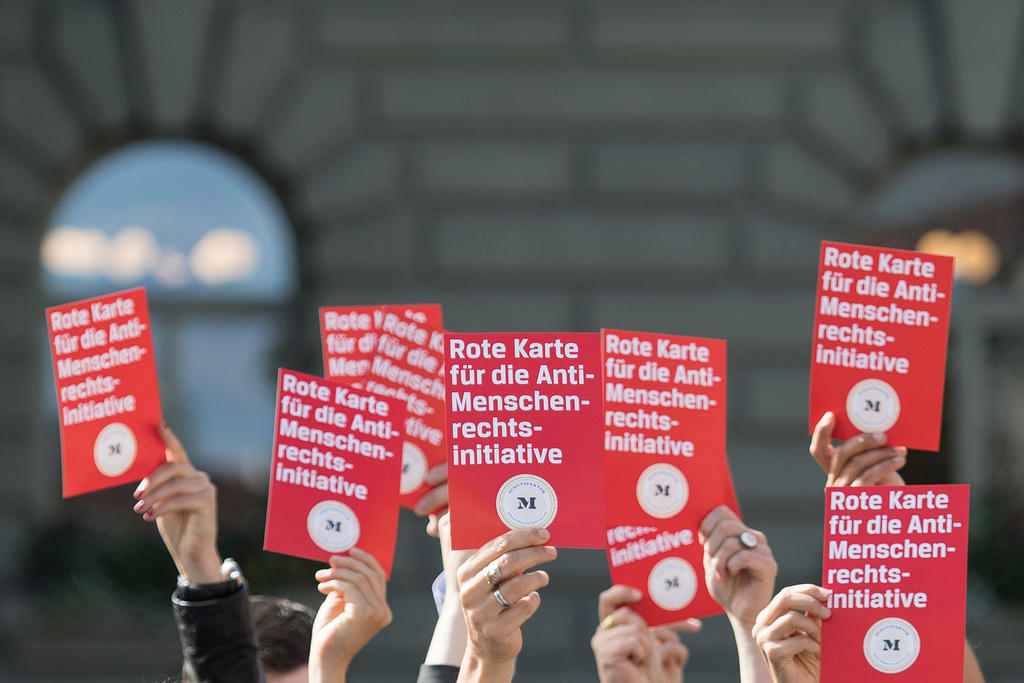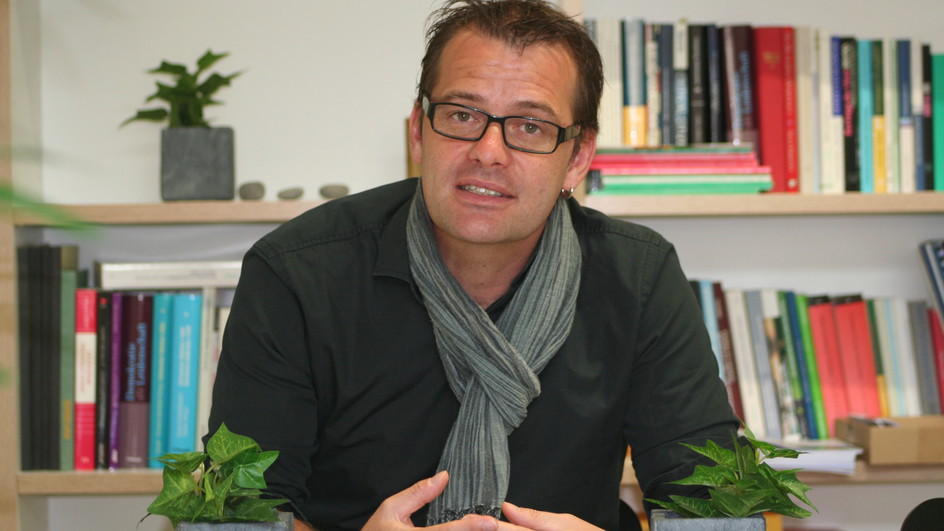
European court’s climate ruling ‘could be own goal’ for green ideas

Political reaction has been mixed to the Swiss government’s conviction by the European Court of Human Rights for failing to act on climate change. In an interview, political scientist Marc Bühlmann explains why he thinks Tuesday’s verdict could play into the hands of the political right.
“The ruling by the European Court of Human Rights (ECHR) is a scandal,” declared the right-wing Swiss People’s Party in a statementExternal link on Tuesday. Switzerland’s largest party condemned the condemnation of the Swiss government for not implementing efficient climate change policies and for violating the right to life of a group of elderly women. The party denounced “interference by foreign judges” and even called for Switzerland to withdraw from the Council of Europe.

More
Landmark ruling: Switzerland’s climate policy violates human rights
Left-wing parties hailed the victory of “Senior Women for Climate Protection”, the association that took the case all the way to the ECHR. The president of the Green Party, Lisa Mazzone, described it as a “historic victory of comparable importance to the Paris Climate Agreement”. The Social Democrats called it a “slap in the face for the government and its climate inaction”.

More
Newsletters
While it is still difficult to assess the real impact that this verdict will have on Switzerland’s action on climate change, the ruling will enliven political debates, according to political scientist Marc Bühlmann, director of the Année Politique SuisseExternal link platform.
SWI swissinfo.ch: On the left of the political spectrum the ECHR’s decision is welcomed. On the right, the view is that it will change nothing. What do you think?
Marc Bühlmann: This is not a new discussion. The People’s Party has long defended the superiority of national law over international law. The same debates took place in 2018, during the federal vote on the self-determination initiative, which sought to enshrine this principle in the Constitution.

More
‘Swiss law first’ initiative given short shrift at polls
The ECHR is a long way from wanting to force Switzerland to do anything, but it is an important player. Its judgement will therefore have an influence on Swiss policy.
SWI: In concrete terms, can we expect this ruling to lead to concrete progress on climate protection?
M.B.: This ruling will play a part in the political discussions on global warming. The left will certainly use it as an argument to push things forwards. There will be more pressure. In ten or 15 years, however, it will be difficult to determine whether the ECHR ruling has really had an influence on climate policy or whether the decisions would have been taken anyway.

SWI: Do you see a problem with the ECHR intervening in Switzerland’s democratically legitimised climate policy?
M.B.: No, I don’t think so. The judges in Strasbourg have not told Switzerland how to deal with the problem. They are not interfering in national politics. It is now up to the Swiss government to find political solutions. The left and the right are not suddenly going to change their positions following this criticism. Discussions on climate policy will therefore continue. However, this ruling is a new argument that will fuel the debate.
SWI: While Switzerland was criticised, the ECHR rejected similar complaints against France and Portugal on the same day. How do you interpret this?
M.B.: I don’t think this can be interpreted politically. The judges are not making political decisions; they are trying to determine whether or not these various complaints are legally admissible.
SWI: The Swiss People’s Party has reacted virulently to Switzerland’s condemnation by the ECHR, calling for Switzerland to leave the Council of Europe. Is this a realistic demand?
M.B.: No. There would be no political majority to support such a proposal. Ultimately, this is also the idea that the People’s Party was defending with its self-determination initiative. To make Swiss law prevail over international law, it wanted Switzerland to denounce these international agreements. The result: not even a third of the population supported the text. Today, the ECHR’s decision might give it more support, but this is not a lasting trend.

More
‘Absurd’ European climate ruling could harm democracy, say Swiss press
SWI: However, the conservative right can now use the Strasbourg ruling as a concrete example of the ‘interference by foreign judges’ that it has always denounced. Could this decision play into the hands of the People’s Party?
M.B.: Probably, because the People’s Party is very good at tying everything that happens to its political agenda. This ruling could be an own goal for environmentalist ideas. The conservative right will certainly use it in its campaign against the reform of the Energy Act aimed at developing renewable energies, which will be put to the vote on June 9. They will argue that the Swiss people need to make their voices heard and not allow things to be imposed on them from abroad. Some people might be tempted to reject the law in order to send out a signal.
SWI: Is there a risk that this will create new blockages in relations between Switzerland and the EU?
M.B.: The People’s Party will no doubt use the ECHR ruling as an example of foreign interference in Swiss affairs. However, the left could also use it to its advantage, saying that Switzerland sometimes needs outside help to ensure that human rights are respected.
SWI: Which side will be more successful in making this argument?
M.B.: The votes and elections will tell us. The use of this judgement as a positive or negative symbol is a political art. We shall see who masters it best. For the time being, however, we have the feeling that the People’s Party will be able to capitalise more on it, as its reaction is already making more waves in the media.
Edited by Samuel Jaberg. Translated from French by DeepL/ts

More
Swiss think it’s vital that other people reduce CO2 emissions

In compliance with the JTI standards
More: SWI swissinfo.ch certified by the Journalism Trust Initiative
































You can find an overview of ongoing debates with our journalists here . Please join us!
If you want to start a conversation about a topic raised in this article or want to report factual errors, email us at english@swissinfo.ch.